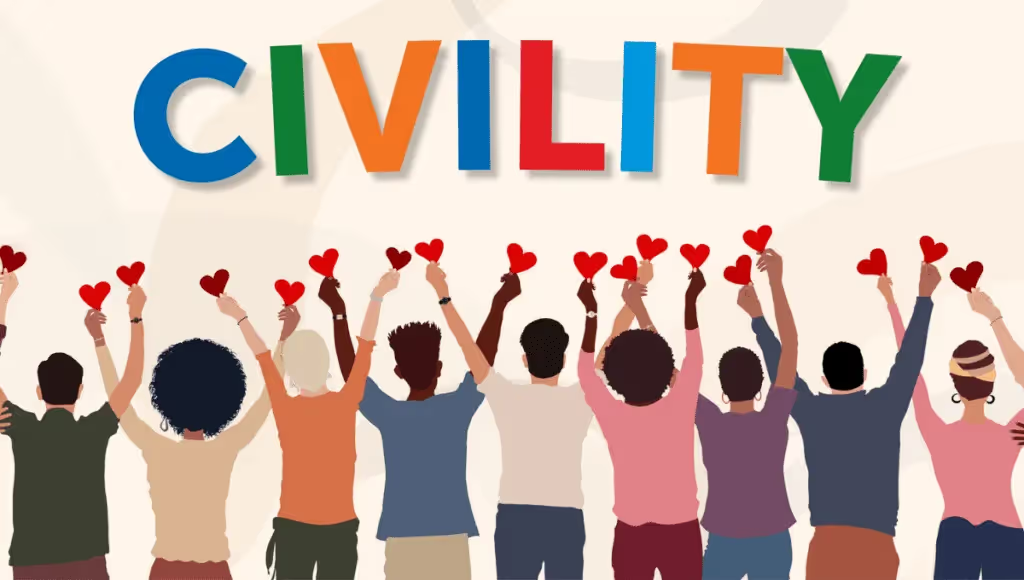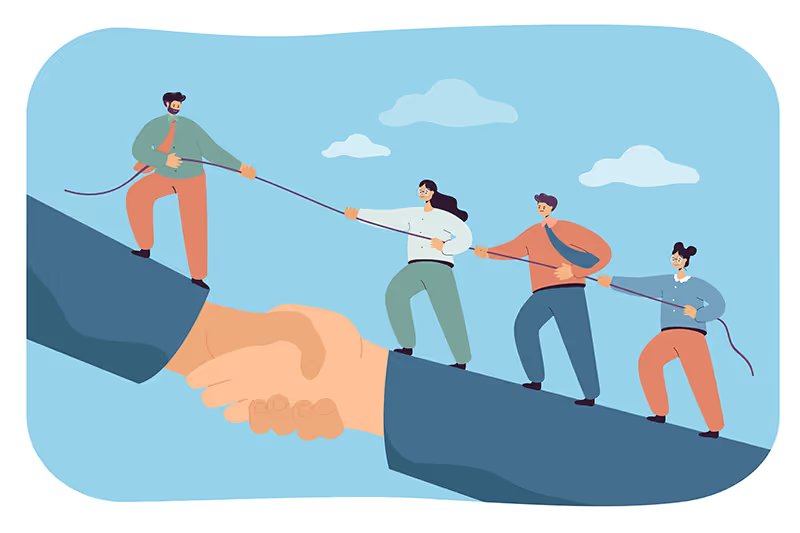Key Insights:• Civility intersects with each component of diversity, equity, and inclusion (DEI).• To create a truly civil workplace, we must understand and value others’ perspectives.• When we integrate civility with DEI, it benefits not only individual employees but also the entire organization’s culture and performance.
With polarization and incivility on the rise everywhere, the workplace is a crucial venue to foster respectful dialogue and inclusive behavior, according to NLI’s Janet Stovall, CDE, and Kerry Snider. In a recent article, they describe how to transform our approach to workplace civility by viewing it through a DEI lens.
What does it mean to be civil? Civility involves acting politely and adhering to social norms. A related but distinct concept is respect, which means acknowledging the inherent worth and dignity of others. When someone says, “We’re on civil terms,” it usually connotes superficial politeness without much (or any) mutual respect. Civility, therefore, is the minimum workplaces should be striving for. To create a truly respectful and inclusive workplace, we must move beyond just being nice to intentionally working to understand and value others’ perspectives.
That’s where DEI comes in. Here’s how civility intersects with each component of DEI:
Diversity: Because civility is rooted in social norms, what’s considered civil behavior can vary across cultures, regions, and even departments. For example, maintaining eye contact might signal attention in some cultures but rudeness in others. Because organizations are made up of people with a variety of backgrounds, experiences, and perspectives, it’s important to recognize these differences and adapt to them rather than enforcing a one-size-fits-all policy of politeness.
Equity: In the absence of equity, civility can perpetuate power imbalances. For instance, let’s say a team uses the common practice of asking its most junior member to take notes during meetings. Even though the manager asks politely, and the junior member accepts politely, this seemingly congenial delegation of tasks means she’ll be less able to contribute and offer her perspectives. A civil, equitable workplace is one where all voices are heard and valued, regardless of seniority or position.
Inclusion: An inclusive approach to civility extends beyond superficial politeness to make everyone feel like they belong and can fully contribute. Instead of just “tolerating” differences, team members actively seek out and value diverse perspectives. Creating an environment of inclusive civility might require adapting communication styles, ensuring accessibility in all interactions, and establishing psychological safety so that everyone feels comfortable expressing ideas and concerns.
The NeuroLeadership Institute’s SCARF® Model (status, certainty, autonomy, relatedness, and fairness) can help us send signals of civility and respect to our co-workers. For instance, you can rotate note-taking responsibilities among team members during meetings to send fairness signals. To send relatedness rewards, you could ask someone who’s had different experiences from you for their perspective. These acts of civility create positive experiences that foster a sense of belonging and shared vision among co-workers.
Civility in the workplace isn’t just about being nice — it’s about providing clear expectations and guidelines for civility and also ensuring those expectations uphold diversity, equity, and inclusion. Integrating civility with DEI encourages open dialogue and empowers everyone to contribute — which benefits not only individual employees but also the entire organization’s culture and performance.
A version of this article appears in PDF form here.




.avif)



